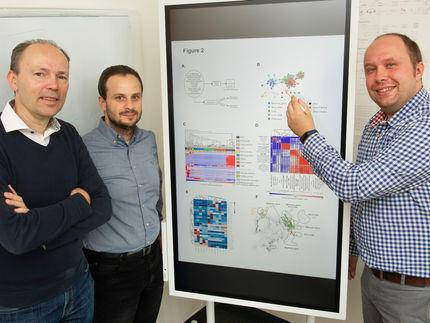Precision medicine test helps guide breast cancer patients' chemotherapy decision
One of the earliest widespread applications of precision medicine in cancer care is helping patients and physicians decide whether chemotherapy is needed, a new study finds.
Researchers looked at a test available to help assess the risk of breast cancer recurrence and whether chemotherapy is likely to help lower that risk in women with early stage disease. The test looks at 21 genes known to increase risk of cancer recurrence. The idea is to avoid chemotherapy in those women at such low risk that they aren't likely to benefit from it and to ensure chemotherapy is recommended for women with higher risk.
"The idea of precision medicine is to give patients the treatments that are the most likely to help and avoid needless side effects," says study author Christopher Friese, Ph.D., R.N., a professor at the University of Michigan School of Nursing.
Researchers surveyed 1,527 women with early stage breast cancer, assessing whether they received the 21-gene recurrence score assay test and whether they received chemotherapy. Currently, cancer care guidelines recommend the test for women with specific tumor features whose cancer has not spread to surrounding lymph nodes.
The study showed that most doctors were recommending the test in line with these guidelines, although 13 percent of women with cancer in their lymph nodes received the test. Current guidelines typically recommend that these women should always receive chemotherapy, and therefore do not need the test. An ongoing clinical trial is looking at the value of the test for this group.
Among those patients who had the test, the results aligned with the decision for or against chemotherapy: 87 percent of patients with a high score had chemotherapy. For patients with the most favorable prognosis and the lowest test scores, only 3 percent received chemotherapy, compared to 13 percent of women who did not have the gene assay test but had a favorable prognosis.
"Chemotherapy has substantial side effects. Improving chemotherapy recommendations to those who truly stand to benefit would reduce complications and improve quality of life for many women," Friese says.
Most patients accurately recalled receiving the test -- the researchers used registry and laboratory data to confirm that. Nearly two-thirds thought the test was helpful, saying that their results helped shift their opinion for or against chemotherapy. Patients reported high satisfaction with their treatment choice.
Based on the diverse sample of patients, the researchers found that race or ethnicity did not play a role in use of the recurrence score assay and recommendation for or against chemotherapy.
While most examples of precision medicine involve clinical trials, the recurrence gene assay shows how precision medicine can be used in everyday clinical care. Overall, the study shows use of the test, treatment recommendations and satisfaction all align. But the researchers note one opportunity.
"Only 60 percent of patients accurately recalled their test result," Friese says. "This suggests that while precision medicine for breast cancer has left the station, we have left a few women behind. There's opportunity in the oncology community to improve how we explain to women the purpose of these tests, how to interpret the results, and what the results mean for their breast cancer treatment."
Original publication
Christopher R. Friese, Yun Li, Irina Bondarenko, Timothy Hofer, Kevin C. Ward, Ann S. Hamilton, Dennis Deapen, Allison W. Kurian, and Steven J. Katz; "Chemotherapy Decisions and Patient Experience with the Recurrence Score Assay for Early-Stage Breast Cancer"; Cancer; 2016
Most read news
Original publication
Christopher R. Friese, Yun Li, Irina Bondarenko, Timothy Hofer, Kevin C. Ward, Ann S. Hamilton, Dennis Deapen, Allison W. Kurian, and Steven J. Katz; "Chemotherapy Decisions and Patient Experience with the Recurrence Score Assay for Early-Stage Breast Cancer"; Cancer; 2016
Organizations

Get the analytics and lab tech industry in your inbox
By submitting this form you agree that LUMITOS AG will send you the newsletter(s) selected above by email. Your data will not be passed on to third parties. Your data will be stored and processed in accordance with our data protection regulations. LUMITOS may contact you by email for the purpose of advertising or market and opinion surveys. You can revoke your consent at any time without giving reasons to LUMITOS AG, Ernst-Augustin-Str. 2, 12489 Berlin, Germany or by e-mail at revoke@lumitos.com with effect for the future. In addition, each email contains a link to unsubscribe from the corresponding newsletter.
























































